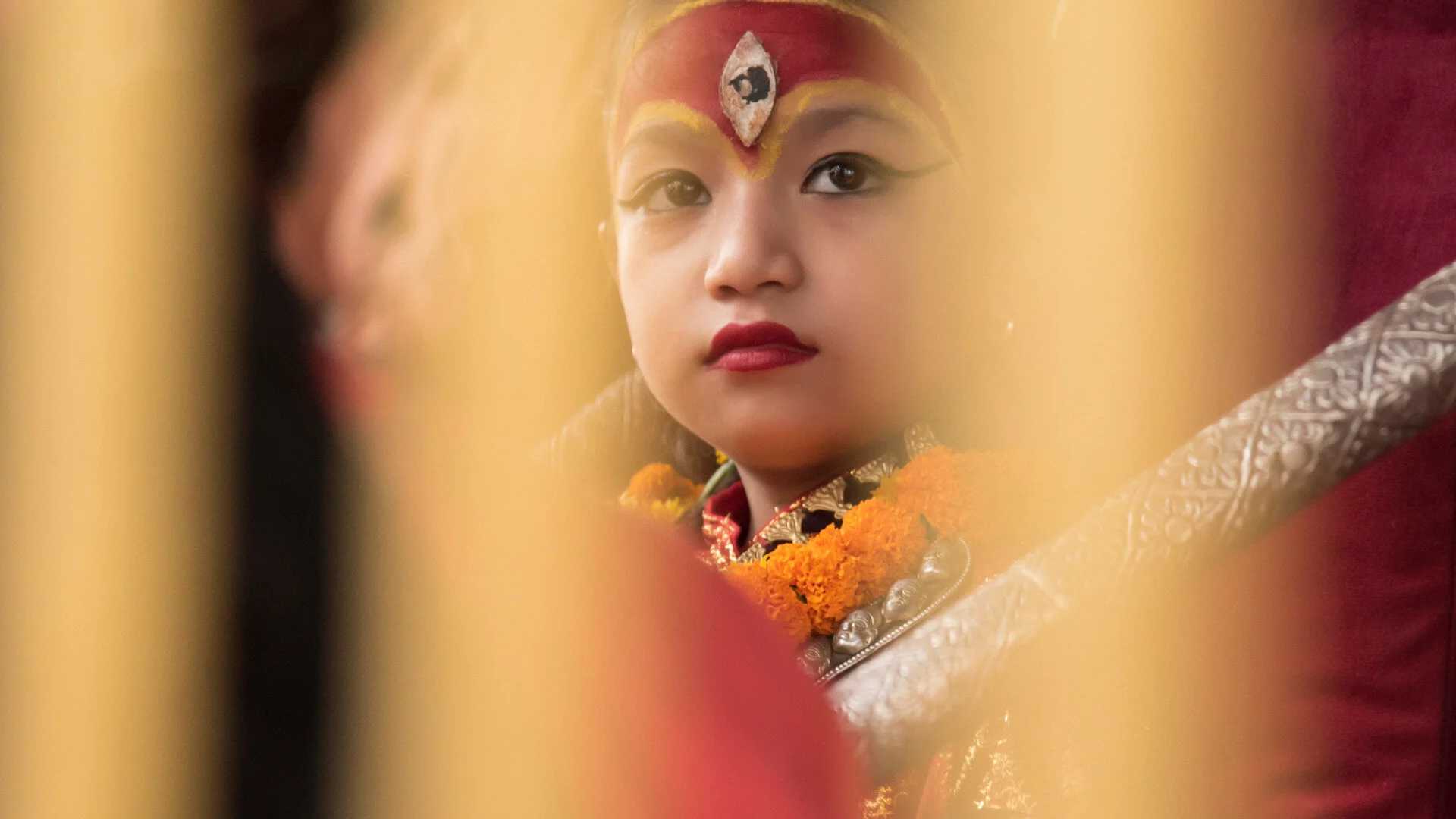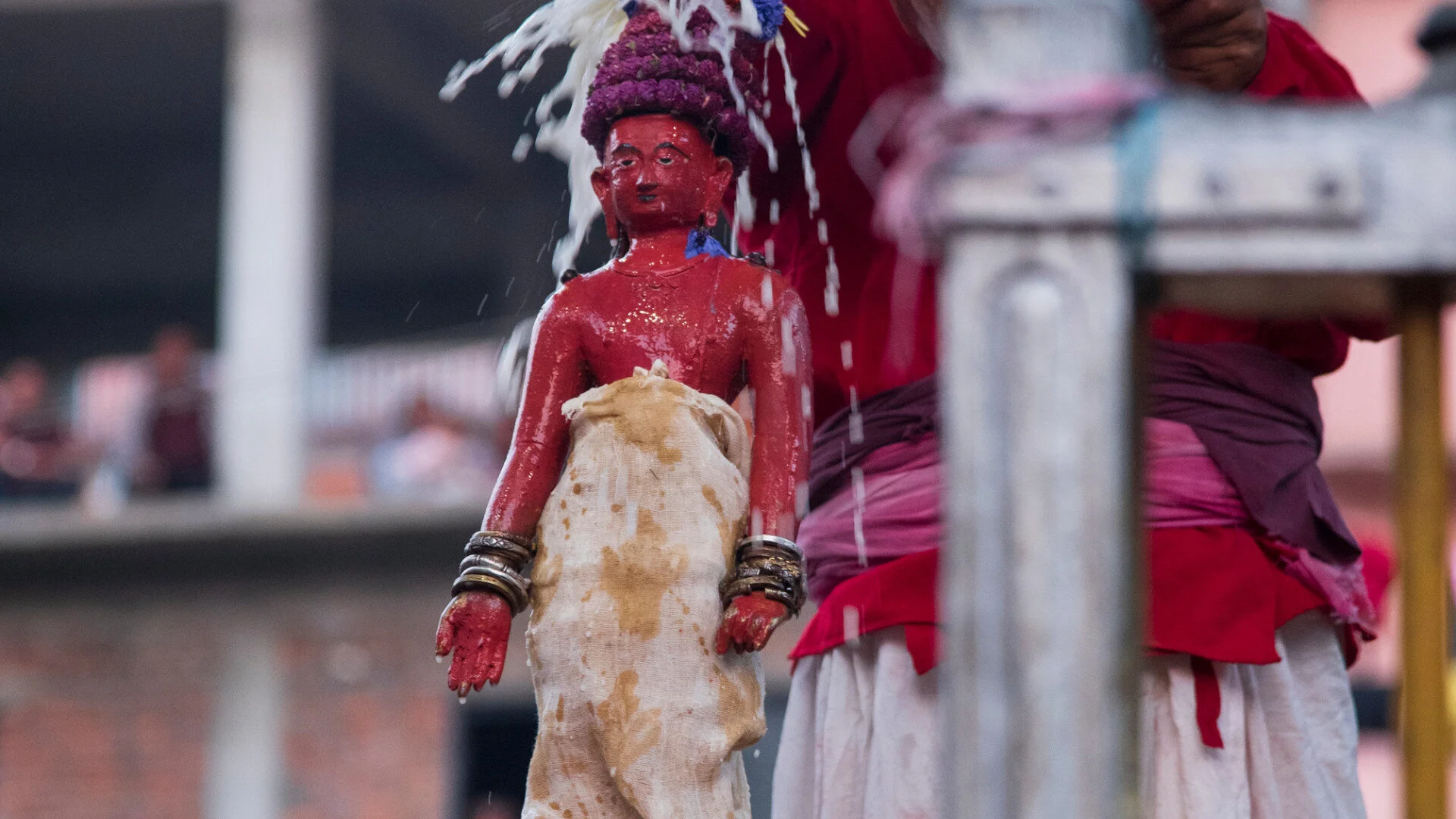The festive season for the Newar community has arrived. The day of Gathe Mangal is the first of the festive calendar, which shall come to an end before the next plantation season. Newars, native inhabitants of Kathmandu valley, shall rejoice and make merry during this period paying homage to numerous gods and goddesses.
Viewing entries in
festivals in nepal
While roaming around Patan Durbar Square, if you stumble upon a creature creating ghastly fireballs, don't be alarmed. He is a friendly Lakhey who the locals call Mi Pwa Lakhey. Mi Pwa in Newari means balls of fire and Lakhey, a helpful demon.
Siti Nakha is a special day in the Newar community dedicated to cleaning water sources. From spouts to taps, wells to ponds, the people band together to ensure its cleanliness. If not done right, great evil spawns from these depths, which decimates the entire city.
In this edition, we look into the moving temple of Bhaktapur. Commonly referred to as Biska Jatra, it is a unique celebration exclusive to the principalities of Bhaktapur. Celebrated with utmost veneration and respect, it overtime has become an intangible landmark. The highlights are the tug-of-war, vermilion festival and the tongue piercing ceremony.
The grand jubilation of Kumari Jatra celebrated during Yenya Punhi (Indra Jatra) is a sight to remember. A day when magic and mystery from all parts of Nepal Mandala (Ancient Nepal) meet at Yeh (Kathmandu) for an opulent festival.
Every temple has a story. Within it lies a deity who has provided some boon to its devotees. His/her celebration is an act of acknowledging their righteous act and reliving history. The Newars added pomp and flare to this celebration with mammoth chariots, traditional tunes and communal merrymaking.
Since time immemorial, humans have created temples. It is a place of worship where individuals offer their prayers and gratitude to their deities. These infrastructures are static, making it difficult for all to reach them at times. Whereas in Nepal, temples move from one place to another in select few days. A process in which, god comes to our squares and doorsteps.
Even though an imitation, over the years, the festival of Seto Matsyendranath has created its own identity. It has developed various symbols and is a timeless heritage of Kathmandu. Today it is known as Jana Baha Dyo (God of Jana Bahal of Ket twah). The idol is viewed as Aryavalokiteswara (God of compassion) by devotees.
Commonly referred to as Sindoor Jatra, it is also known as Biska Jatra of Thimi. It is one of the most vibrant festivals celebrated in Kathmandu Valley. The highlight is the ceremonial use of vermilion powder which adds a new layer of pomp and flair. The locals rejoice for four days during the new year period, devotees offer prayers and worship various gods and goddesses.
The use of colours as a symbolic tool to mark joy and fanfare is a common tradition. It is used in various festivals throughout many cultures to symbolise festivity, joy and victory. In Nepal, two distinct festivals: Sindoor Jatra, and Holi have one thing in common; colours.
There are many legends about the origin of how the Kumari Jatra tradition started. The most popular one is of King Jaya Prakash Malla, the last ruler of the Malla dynasty, which tells how the goddess Kumari vanished when the queen finds out to whom the King secretly visited every night.
The Legend of Min Nath: smaller chariot paraded along the streets of Patan during Rato Matsyendranath festival worship dates back longer than of Rato Matsyendranath. Before the Rato Matsyendranath festival in Kathmandu, there use to be another chariot festival. A chariot of an idol, Min Nath or Karunamaya.













